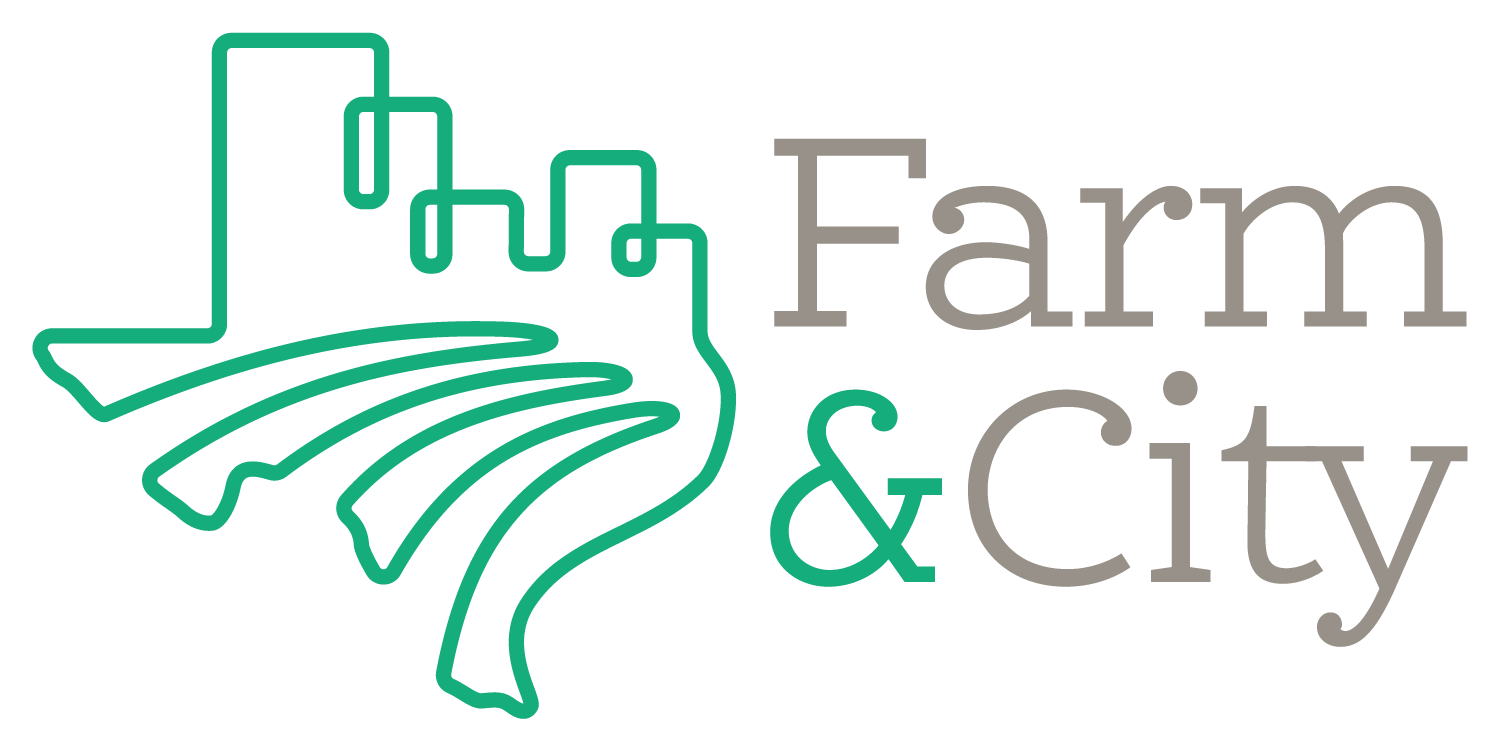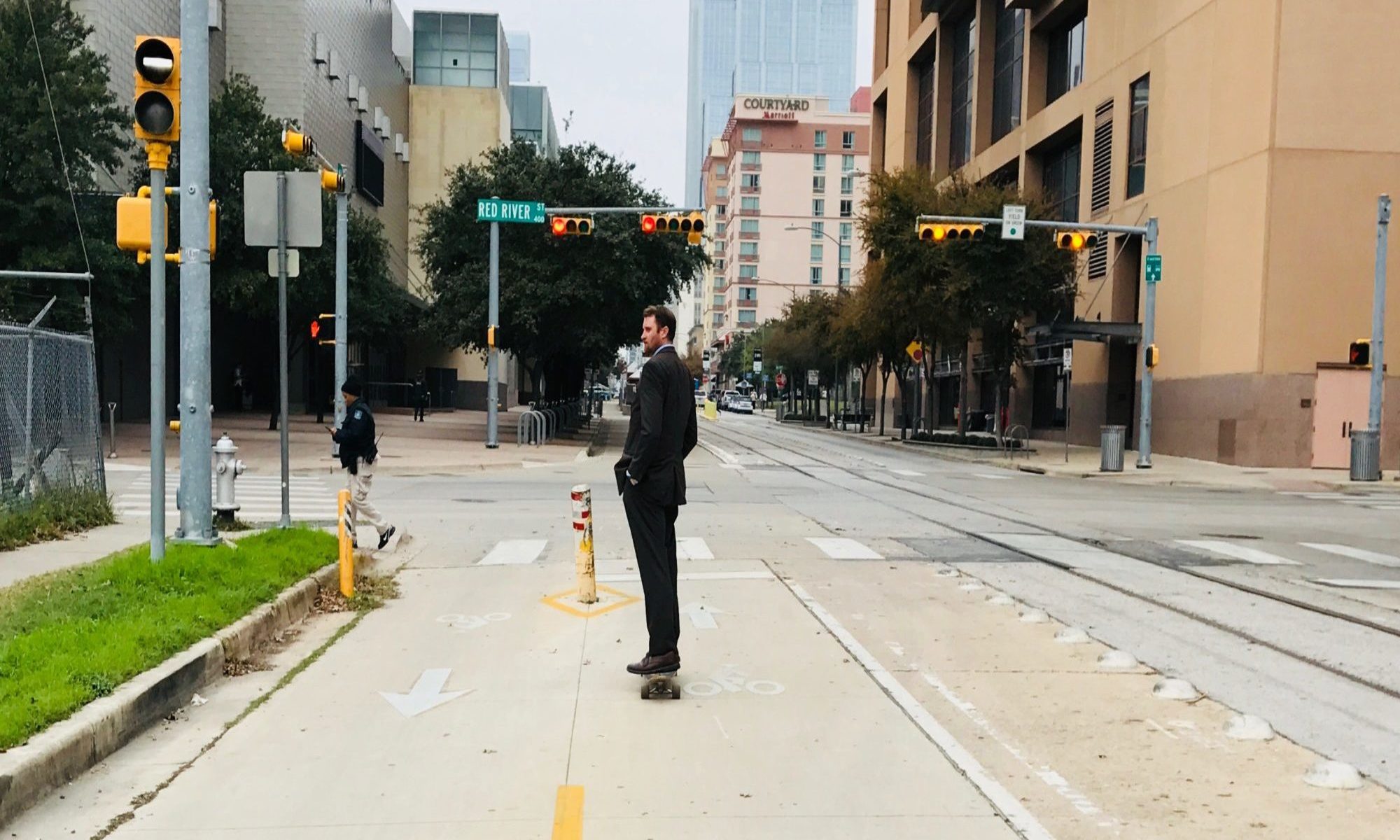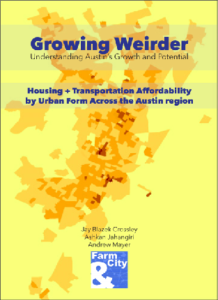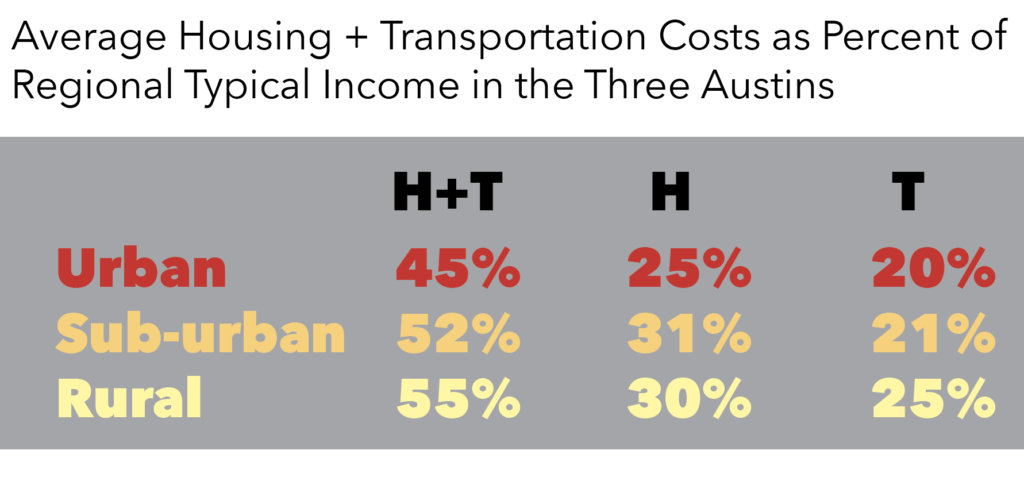While the myth of “driving til you qualify” remains strong in the media, public opinion, and public policy decisions across Texas, it’s not quite a true story for most people – if you talk about all housing options instead of simply owning a single family home. On average, living in the dense urban part of Austin costs less for both housing and transportation expenses, compared to the sub-urban or rural parts of the region.
This first report from our Growing Weirder project is all about the questions of affordability and regional growth options for Austin. Further reports will look at strategies to provide more people with affordable, low carbon lifestyle options in Austin, but we begin with this baseline look at affordability across the region.
Location efficiency can and should be integrated in all housing and transportation related public policies, as well as private programs, such as websites related to realty and finding new housing. Regional growth policies such as CodeNEXT or the 2045 Regional Transportation Plan could fullly integrate this knowledge of affordability to try to give as many people as possible access to affordable housing.
Download the full report
GrowingWeirder_Affordability (pdf)
Printable version: GrowingWeirder_Affordability_Printable (pdf)
Growing Weirder is our initiative to advocate for equitable, sustainable regional growth through the two major planning decisions currently underway in the Austin region. The City of Austin’s land use and development code rewrite, CodeNEXT, will determine what proportion of the 700,000 newcomers over the next ten years will be allowed to live in the City of Austin. CAMPO’s 2045 Regional Transportation Plan (RTP) will determine many aspects of the region’s future, including the possible conversion of up to 650 square miles of rural areas to sub-urban or urban.
Farm&City produced a number of reports taking an in-depth look at the different factors influenced by these broad decisions, with some surprising conclusions. This work provides direction for the planning efforts listed above: if it is more affordable to live in a more compact, connected city, equitable long-term decisions should work to provide meaningful options for living in such places.
Growing Weirder is made possible through the generous support of our sponsors: GreaterAustin Neighborhoods, Blazek & Vetterling, Impact Hub Austin, and My Brilliant City.



